12 Dystopian Movie Endings That Stick With You Forever
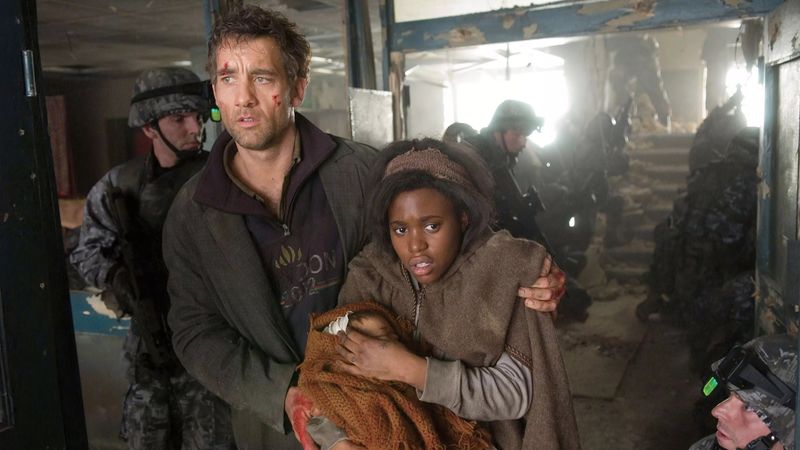
A great dystopian ending doesn’t just tie up the story—it leaves you unsettled, hopeful, or questioning everything you thought you knew. Whether it’s a tragic surrender, a daring escape, or a bittersweet victory, these finales carve themselves into our memories. Here’s a look at the twelve most powerful dystopian movie endings ever put on screen, ranked by the emotional punch they deliver.
1. Blade Runner (1982)
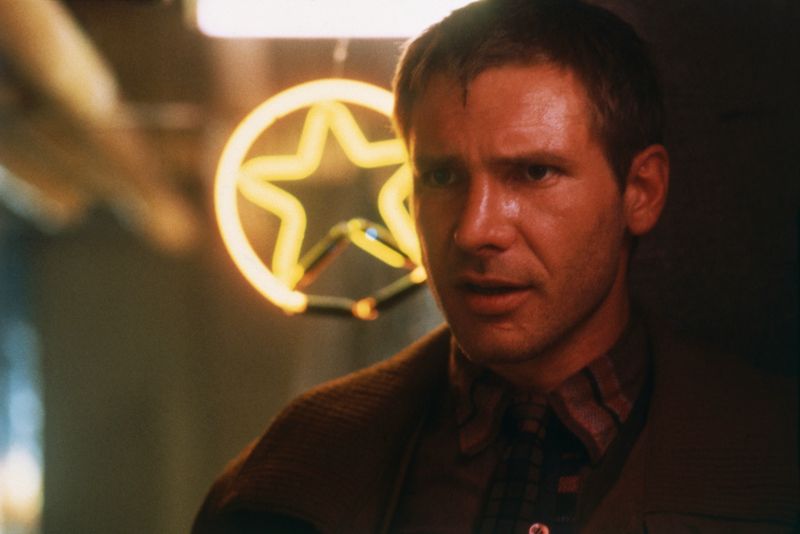
Few finales are as iconic as Ridley Scott’s noir-inspired masterpiece. Deckard and Rachael’s escape may seem simple on the surface, but it’s layered with ambiguity that fans still debate today.
Is Deckard human, or has he been living as a replicant all along? The open-ended nature of his identity makes the ending unforgettable.
Beyond the mystery, it’s a love story set against a decaying world. The two flee into the unknown, risking everything for a chance at freedom. It’s romantic, but never comfortably so—the kind of ending that lingers. By refusing to give easy answers, Blade Runner created one of cinema’s most talked-about conclusions.
2. Brazil (1985)
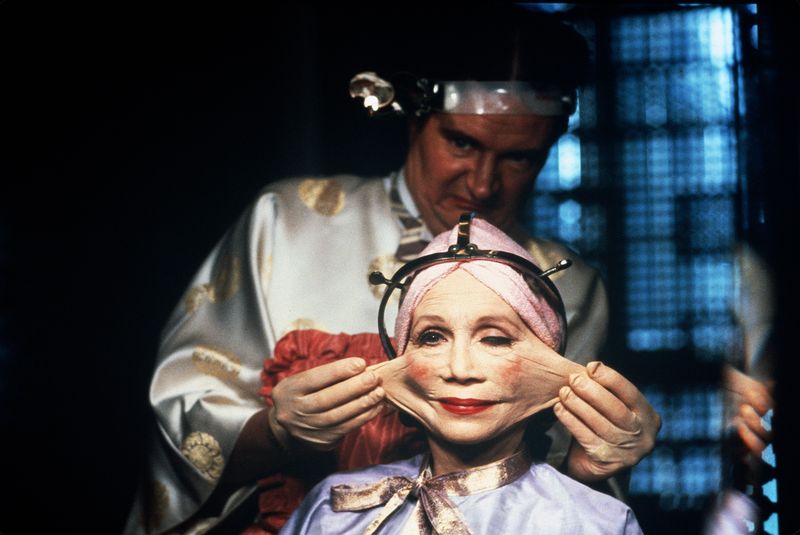
At first glance, it looks like Sam Lowry has escaped the nightmarish bureaucracy that trapped him. He’s soaring through the clouds, living out his dreams, and finally free. But the gut-punch twist is that it’s all in his head—he’s been captured, tortured, and left broken.
Terry Gilliam’s bleak satire delivers one of the darkest endings in dystopian cinema. It’s not just tragic—it’s terrifying in how it portrays a world where fantasy is the only real escape.
The ending forces viewers to confront the crushing power of authoritarian control and the fragility of the human spirit. No wonder Brazil is still considered a classic of darkly comic despair.
3. 1984 (1984)
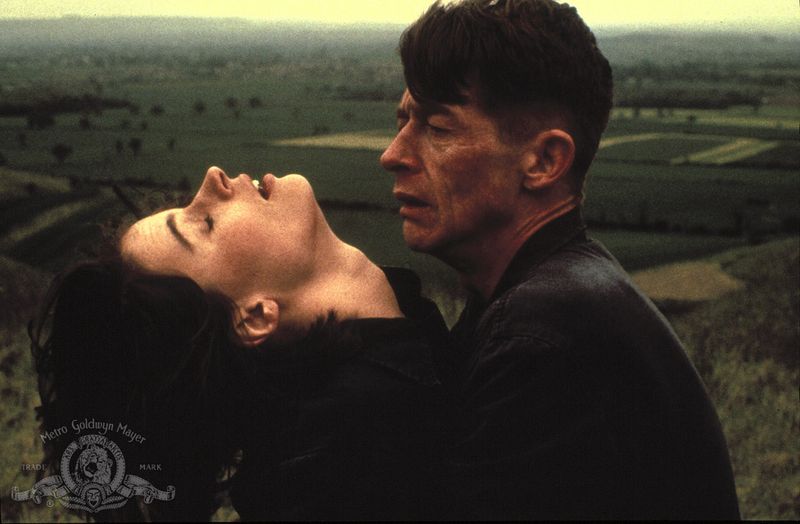
George Orwell’s story always promised a brutal finale, and the film version doesn’t pull its punches. Winston Smith resists, dreams of rebellion, and even finds love. But in the end, the system wins.
The final scene is one of the most chilling ever filmed. Winston, once defiant, is now broken, declaring his love for Big Brother with dead eyes. It’s the ultimate surrender—not just of body, but of mind and soul.
What makes it so haunting is that it feels horrifyingly plausible, even today. The ending is a stark reminder that in true dystopias, hope is often an illusion.
4. Children of Men (2006)
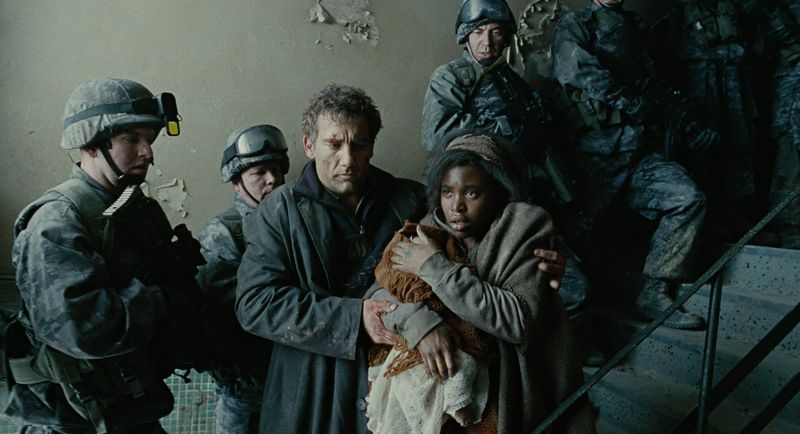
Alfonso Cuarón’s bleak vision of a dying world doesn’t leave viewers with comfort, but it does leave a spark of hope. Theo’s journey to protect Kee, the first pregnant woman in decades, is filled with danger and sacrifice. By the end, he’s mortally wounded, but Kee and her baby are rescued.
The ending is quiet but powerful. As Theo slumps in the boat, the Human Project ship appears on the horizon. Humanity might still have a future. The bittersweet balance of loss and renewal makes the film’s conclusion deeply moving. It’s a reminder that even in the darkest times, hope can still survive.
5. A Clockwork Orange (1971)
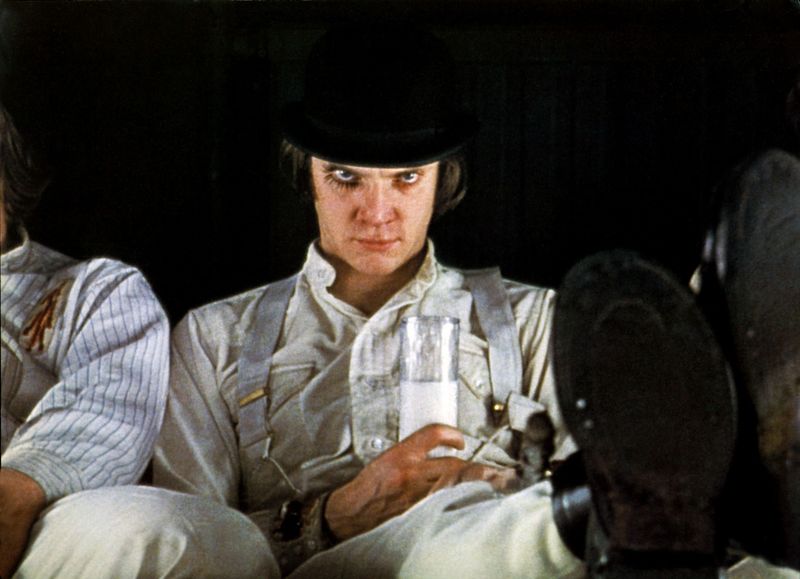
Stanley Kubrick’s adaptation of Anthony Burgess’s novel closes on a note that’s both triumphant and deeply unsettling. Alex, once subjected to horrific psychological conditioning to strip away his violent tendencies, finds himself “cured.”
The final moments show Alex, smiling wickedly, embracing his violent fantasies once again. It’s disturbing because it suggests the system failed, but also because it implies that free will—even when used for harm—is part of what makes us human.
The ending is as controversial as it is brilliant, leaving audiences debating morality, control, and what it really means to be “good.”
6. Snowpiercer (2013)
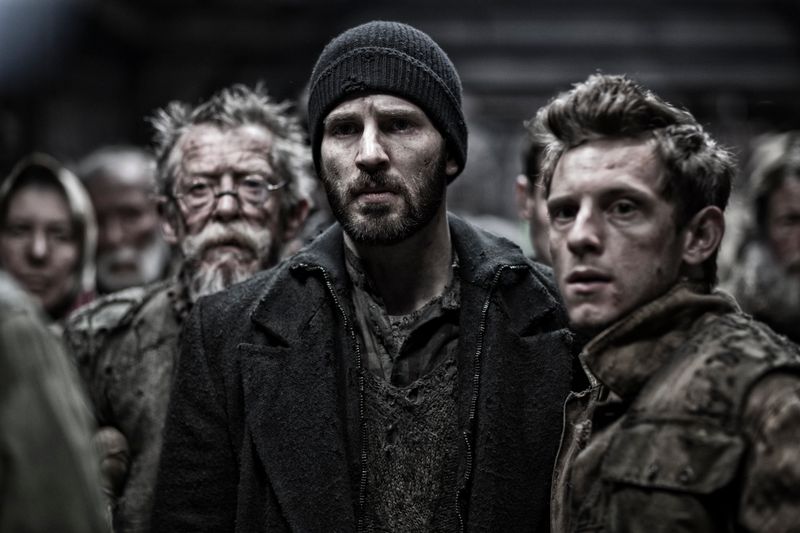
The last survivors of humanity live on a perpetually moving train, but Bong Joon-ho’s wild allegory doesn’t let them stay there. Curtis sacrifices himself to dismantle the system, causing the train to derail in a fiery climax.
Amid the destruction, two characters—Yona and a young boy—step outside into the snow and spot a polar bear. It’s a symbol of survival and rebirth.
The ending leaves you questioning whether humanity will adapt or perish, but it’s impossible not to feel a flicker of optimism. After so much darkness, the possibility of a new beginning is breathtaking.
7. The Road (2009)
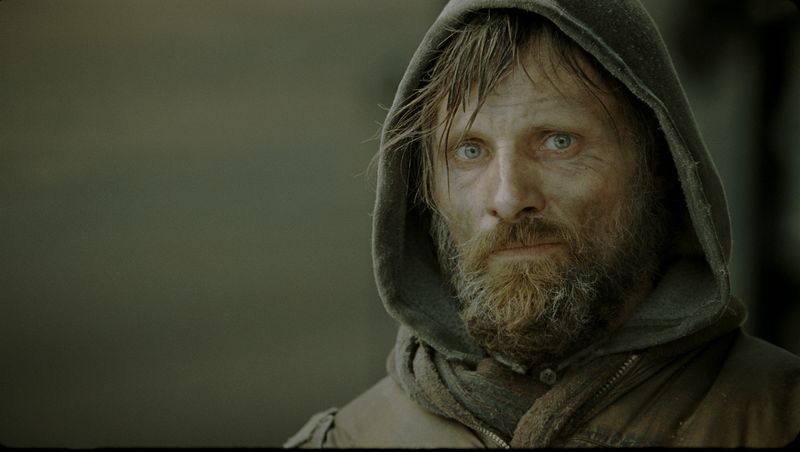
Few dystopian films are as relentlessly bleak as The Road. The father and son’s journey through a desolate, ash-covered world feels hopeless at times, but their bond gives the story emotional weight.
When the father dies, the boy is left alone—until he’s taken in by another family. It’s not a triumphant ending, but it’s not entirely hopeless either. The boy carries the lessons of his father with him, becoming a small beacon of humanity in a dying world.
The ending resonates because it balances despair with the possibility of survival and kindness.
8. The Hunger Games: Mockingjay – Part 2 (2015)
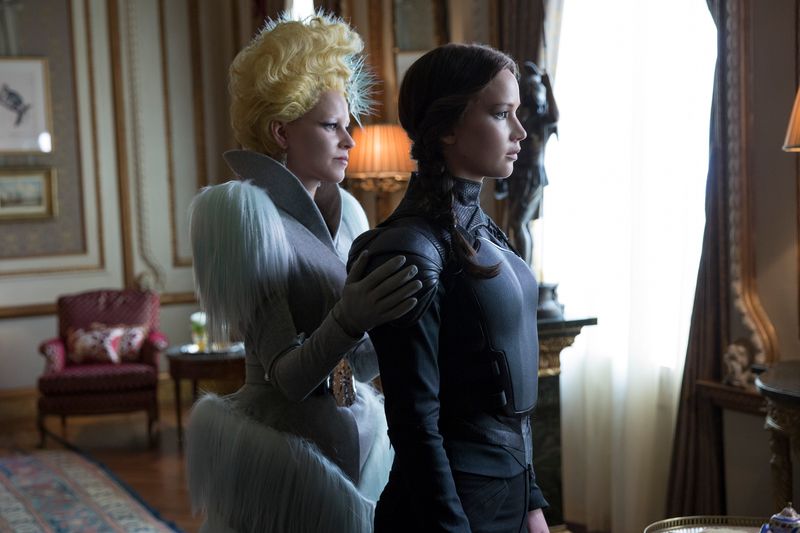
Katniss Everdeen’s final act isn’t the one anyone expected. Instead of executing President Snow, she kills Alma Coin, recognizing that tyranny was about to be replaced with another version of the same cruelty.
The ending forces Panem into a different kind of future. Katniss chooses her own path, retreating to a quieter life, raising children with Peeta, and finding a fragile peace.
It’s not a neat happily-ever-after, but it’s a believable conclusion for someone who’s endured so much trauma. What makes the ending work is its realism: in dystopias, victory rarely comes without scars.
9. The Matrix Revolutions (2003)
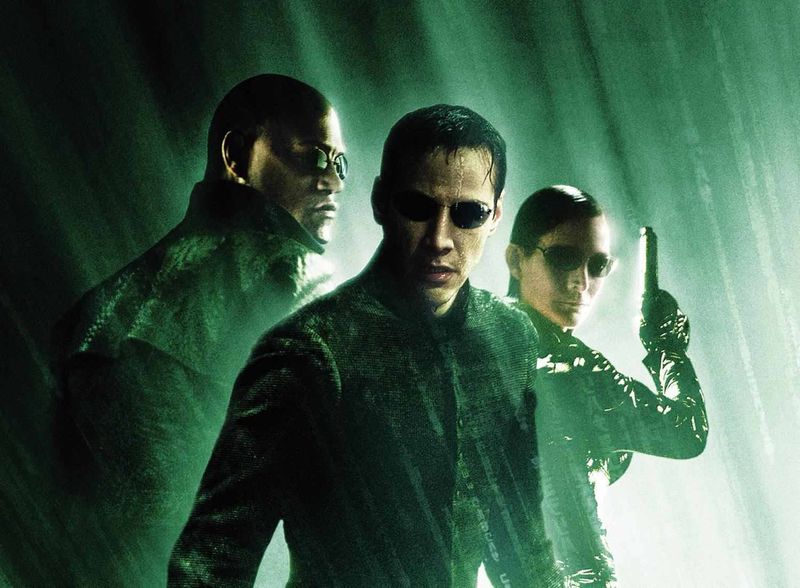
Neo’s story ends not with ultimate triumph, but with sacrifice. By giving his life to broker peace between humans and machines, he prevents total annihilation—at least for now.
The final scenes are bittersweet. Humanity isn’t entirely free, but it’s no longer enslaved. The machines honor their truce, leaving the door open for a new future. The ending emphasizes compromise and sacrifice rather than easy victories.
It may not have the same cultural punch as the original film, but it closes the trilogy with a message that resonates: sometimes survival depends on balance, not domination.
10. THX 1138 (1971)
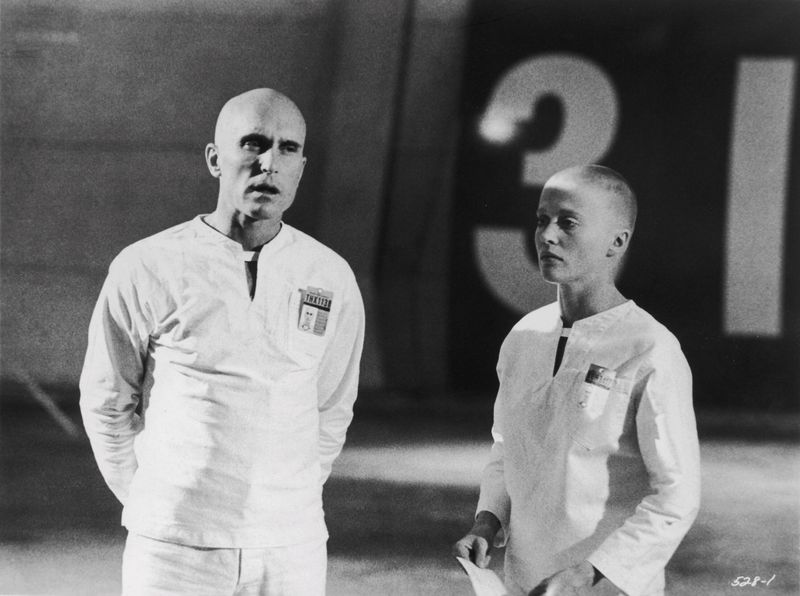
George Lucas’s first feature is often overshadowed by Star Wars, but its ending is quietly powerful. THX, tired of the sterile underground society, risks everything to escape.
In the final moments, he emerges from the oppressive tunnels into sunlight for the first time. The shot of him silhouetted against the vast sky is striking, symbolizing freedom, individuality, and the unknown. Unlike many dystopian endings, this one leans toward hope.
The world may still be bleak, but for THX, stepping into it means reclaiming his humanity. It’s a simple but unforgettable conclusion.
11. Gattaca (1997)
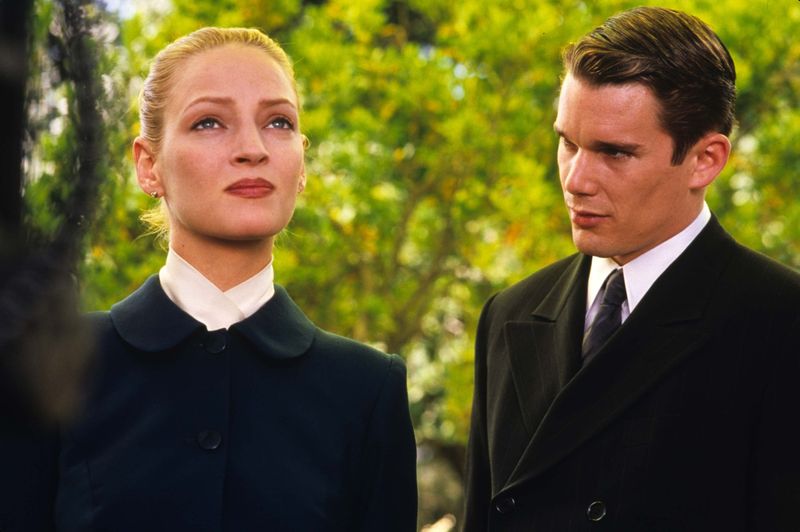
Vincent Freeman’s entire life has been about defying the genetic lottery. Born without “superior” DNA, he dreams of space travel in a society obsessed with perfection.
The ending finally gives him his chance. As Vincent boards the ship, he leaves behind a world that told him he wasn’t good enough. At the same time, his genetically engineered brother learns the value of human determination.
The film closes with Vincent’s victory not just over society, but over the belief that genes define destiny. It’s one of the most uplifting endings in dystopian cinema, celebrating grit over design.
12. Logan’s Run (1976)
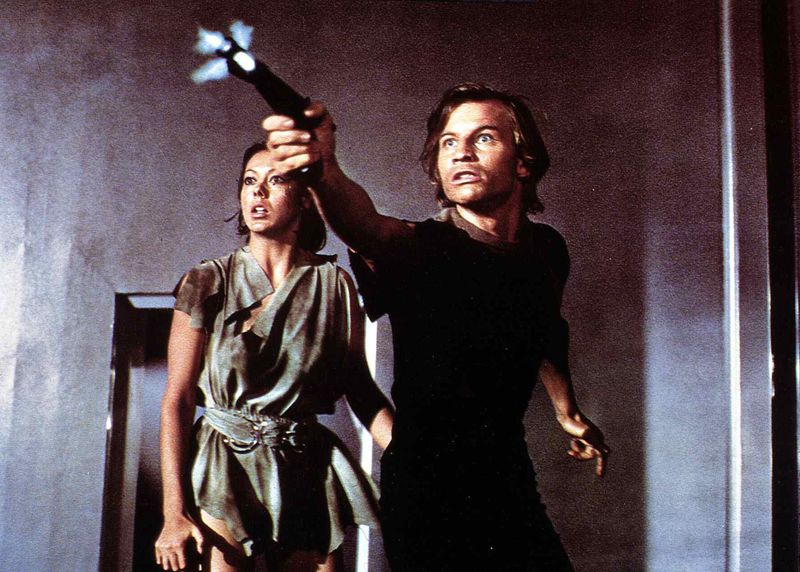
Life inside the dome seems perfect—until you realize no one is allowed to live past 30. Logan and Jessica uncover the truth and fight their way to freedom, dismantling the system that ruled their lives.
The final scenes are both shocking and hopeful. The city’s inhabitants, who’ve never known a life outside, finally see the sun.
The ending feels dated in some ways, but its core message still resonates: societies built on lies will eventually collapse. It’s a classic dystopian finale that set the stage for many films that came after.

Comments
Loading…